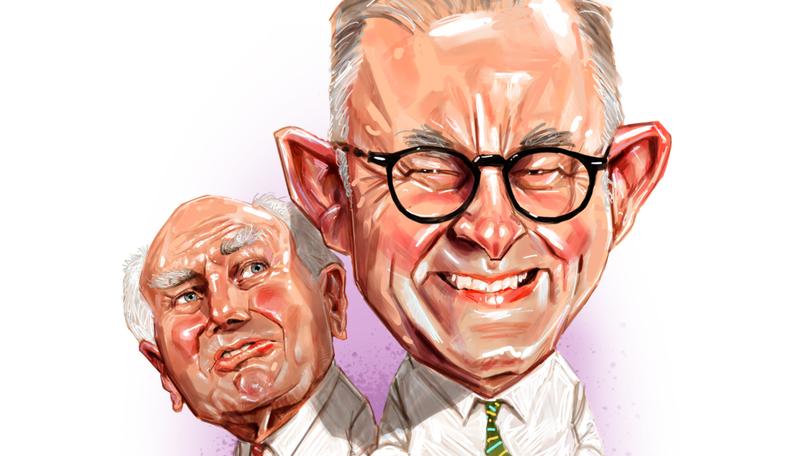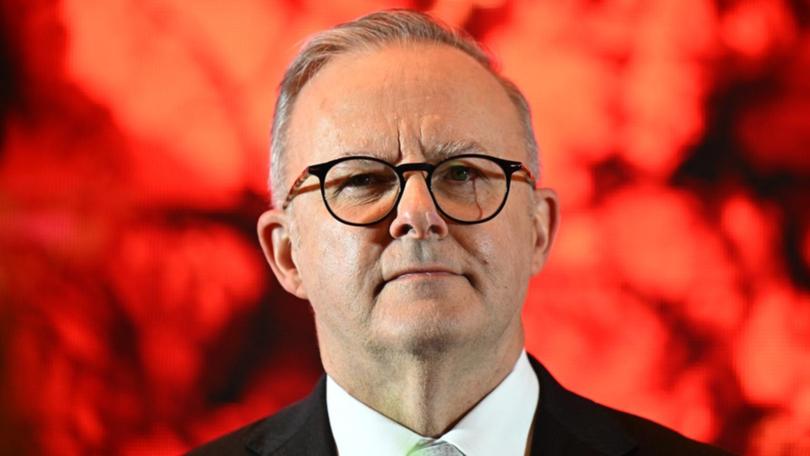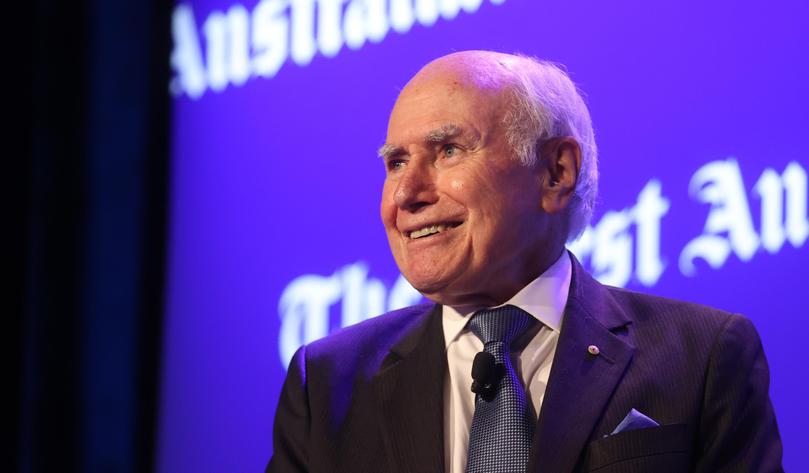Mark Riley: John Howard and Anthony Albanese have more in common than you’d think
When a senior Labor figure told me “Albo and John Howard are very similar people”, I scoffed. However, the longer the conversation went on, the more plausible the affinity between the two appeared.

The comparisons at first sounded too wild to deserve serious consideration.
“Albo and John Howard are very similar people,” the senior Labor figure told me.
I scoffed. Naturally.
Sign up to The Nightly's newsletters.
Get the first look at the digital newspaper, curated daily stories and breaking headlines delivered to your inbox.
By continuing you agree to our Terms and Privacy Policy.But, as much as I looked for it, there wasn’t even a hint of irony in his expression.
Surely, this was a gee-up?
Labor’s prince of the progressives and the old-school king of the conservatives? Two peas in a pod?
Give me a break.
The longer the conversation went on, though, the more plausible the affinity between the two ideological arch-enemies appeared.
Both, the Labor figure said, were utterly political beings with intimate knowledge about how their parties breathed.
Albanese born into Labor brought up through the union movement, learnt his craft in the brutal world of NSW Labor’s Sussex Street headquarters and perfected the art of politics at the knee of a legendary working-class warrior and Whitlam and Hawke government minister, Tom Uren.

Howard was the same in a polar opposite world — the very template of a complete conservative.
He was born a Liberal, brought up in a small business, pumping petrol at his father’s service station, officially joined the party at just 18 and as a young Sydney solicitor perfected the art of politics at the knee of then-NSW Liberal Party secretary and Fraser government minister, Sir John Carrick.
Although Uren and Carrick were also ideological opposites, they shared a deep and indelible bond forged in the horrors of war.
They were both captured by the Japanese, sent to Singapore’s notorious Changi Prison and subjected to the unimaginable brutality of enforced labour on the Thai-Burma Railway.
The cruelty of their shared experience spawned a deep friendship across the parliamentary aisle that bemused those of their colleagues who were unaware of how history had connected them so profoundly.
Labor’s prince of the progressives and the old-school king of the conservatives? Two peas in a pod? Give me a break.
The same collegiality was hardly evident in Albanese and Howard’s shared time in the Parliament.
In 1999, Albanese made a reflection that now takes on added poignancy as Howard campaigns furiously against a Voice to Parliament.
Albanese accused him of “sabotaging the process of reconciliation with Indigenous Australians” by not offering a formal apology to the Stolen Generations. That was eight years before Kevin Rudd eventually did.
Albanese later railed against Howard’s decision to commit Australia to George Bush’s “Coalition of the Willing” in Iraq and helped lead the charge against WorkChoices, which he saw as the culmination of Howard’s ideological crusade to destroy the unions.
Warming to his thesis, the senior Labor figure noted that the withering character assessments were reciprocated in kind.
Howard labelled Albanese during the last election campaign as a “left-wing, inner-city bomb thrower” who lacked “any policy substance”.
It was an impression he’d held since Albanese entered the Parliament in 1996.
“I had nothing against him. I just didn’t see him as somebody who would ever be a leader,” he said, knowing the exact same thing was said about him through the 1980s and early 1990s.

Howard had been in Parliament for 22 years before he became prime minister. For most of that time, his chances of ever attaining the highest office had been dismissed as fanciful.
Albanese had been an MP for 26 years before he became PM. For most of that time, he’d been considered a loyal lieutenant who would never make it to general.
And, the senior Labor figure said, they’d both defied the predictions of commentators and the expectations of their own colleagues by making it to the top.
Perhaps it was the shared life lesson of their respective mentors — when all appears lost, look within for strength, determination and purpose.
It is a lesson the Labor figure believed Anthony Albanese might draw upon again in the coming days as he contemplates the possibility of defeat in the Voice referendum.
Just as Howard once compared his own prospects to those of “Lazarus with a triple-bypass”, Albanese may need to resurrect his own standing as a leader.
And that, the Labor figure said, was another comparison that did deserve consideration.

